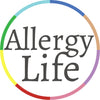This insight was written by allergy community volunteers, September 2025
With 31.5% of Australians being born overseas and 22.3% of Australians using a language other than English at home, cultural diversity is a large part of Australia.
Anyone can have allergies, regardless of their cultural background. However, allergies may be viewed differently from culture to culture, and sometimes, explaining your allergies or your loved ones' allergies to someone who shares your cultural background may feel challenging, especially if certain allergens are part of the traditions and are deeply valued.
Cultural Perspectives and Stigma
Some cultures are not as familiar with how to talk about allergies, especially if they may not acknowledge the existence of allergies or do not take allergies seriously.
Misunderstandings with some communities still exist today, where allergies can still carry the stigma of only occurring within other cultures, not in their own.
In this insight, we share some tips on how you can navigate conversations and address how to respond to some common comments that may come up.
Tip: Education - A Gentle Nudge
Start by laying the groundwork, explaining what allergies are, how they affect you and what they need to be aware of. Remember that you may be the first person to directly talk about allergies seriously with them.
- For example, you could say- “It’s not just a preference or me being picky - my body reacts to this food/substance/allergen. It is a medical condition, and when I come in contact with this food/substance/allergen, it causes a reaction, and I will require medical attention."
Tip: Explain the Consequences - Clearly, but Calmly
Ensure that the seriousness of your allergies and what the consequences could look like are properly understood.
- Remember to use calm, factual language.
- Use analogies, stories or photos from the past to illustrate the severity and the reactions.
- If you have a Pallergy or people around who can support you to confirm your allergy, ask them to help explain with you or on your behalf.
- If needed, use simple visuals to get the point across, and show them your emergency medication or visual allergy alert.
What is a Visual Allergy Alert? A Visual Allergy Alert is a visible aid for a person with allergies to Show & Tell (present) their allergies and emergency instructions to others to prevent risk and increase safety through Allergy Awareness. This can be through a digital My Allergy Card, physical Allergy Card, Medical Alert Bracelet, Action Plan or Emergency Necklace.
Tip: Address the Stigma Directly
Frame your allergies as a medical condition, not a cultural conflict. Below are some examples of comments and the types of responses you can use to address them.
-
Comment: “You’re just being picky.”
- Example Response: “I love our food/cultural custom, this isn't a preference, but this is about my safety.”
- Example Response: “I love our food/cultural custom, this isn't a preference, but this is about my safety.”
-
Comment: “It’s only a Western issue."
- Example Response: “People everywhere have allergies. It’s not a Western issue - it’s a medical condition.”
- Example Response: “People everywhere have allergies. It’s not a Western issue - it’s a medical condition.”
-
Comment: “It’s only a little bit - it won’t do anything to you.”
- Example Response: “Even small exposures can cause serious and severe reactions for me.”
- Example Response: “Even small exposures can cause serious and severe reactions for me.”
-
Comment: “You’ll get used to it."
- Example Response: “Unfortunately, that’s not how my allergies work, as exposure can lead me to have serious and severe reactions.”
- Example Response: “Unfortunately, that’s not how my allergies work, as exposure can lead me to have serious and severe reactions.”
-
Comment: “You should have a little. I read somewhere that if you take a little bit here and there, it will make you better.
- Example Response: “Thank you for caring about me. I'll talk to my Doctor about that, but I won't do that now as it can lead me to have a serious and severe reaction."
Tip: Politely Ask for Specific Support
Instead of saying something like “Please be careful,” try something specific:
-
Food allergies:
- “Can you check the label for [x] before serving?”
- “Can you please let me bring my own allergy friendly meals/snacks for safety?”
-
Contact, environmental, skin-related allergies:
- “I can’t wear traditional clothes/jewellery because of the material that causes a reaction- can I wear something that’s comfortable and safe for me?”
- “Please don’t spray perfume or incense near me, as it causes a reaction.”
-
Contact, latex allergies:
- "Please don't use that material or give me anything made with it, as it causes a reaction."
-
Pet allergies:
- "Can you please keep your pets in another room or at a distance from me? I have allergies that can be triggered by animals."
-
Pollen, environmental allergies:
- "Can you please keep your windows closed, and can we please avoid sitting outdoors when pollen counts are high, as it helps prevent me from having a reaction."
-
Reactions:
- If I am having a reaction, please check with me for my emergency instructions or follow my action plan before giving me any medications, as some may not be safe or effective for me.
#5: Encourage Learning and Safe Practices
Try to turn their confusion into curiosity!
- Offer to show them your AutoInjector (EpiPen or Anapen), safe food label, or safe product alternatives.
- Show them your allergy card or an emergency action plan document.
- Share translated or visual resources that explain allergies clearly.
- Invite open conversation and questions.
Other tips to keep in mind:
Set boundaries when needed, and acknowledge their good intentions. “I can’t eat that, even if it’s made with love."
If you are dismissed, teased, or not taken seriously, respond calmly but firmly. "I know it’s not something you deal with often, but I do, and it’s important for my safety because this is a serious medical condition."
Avoid guilt-tripping or making them feel like their opinions and perspectives are not valid.
Keep in mind that some people may need a bit more time to adjust their understanding.
FINAL WORD
Thank you for reading this insight. Anyone can have allergies, regardless of their cultural background, which is why it's important we discuss Allergies in Cultural Communities.
If you have any specific experiences or tips you would like to share, please send us a message or email us at contact@allergylife.com.au and let us know! We would love to share your story.
-------
This insight was contributed by volunteers and community feedback. We thank them for their efforts, creativity and care in bringing these insights to helping Australians with allergies live a safer and happier allergy life.
The information provided on Allergy Life Australia is to generally educate and inform you about living with allergies, intolerances and conditions, and is not intended as medical instruction or as a substitute for diagnosis, examination and advice by a qualified health care provider.




